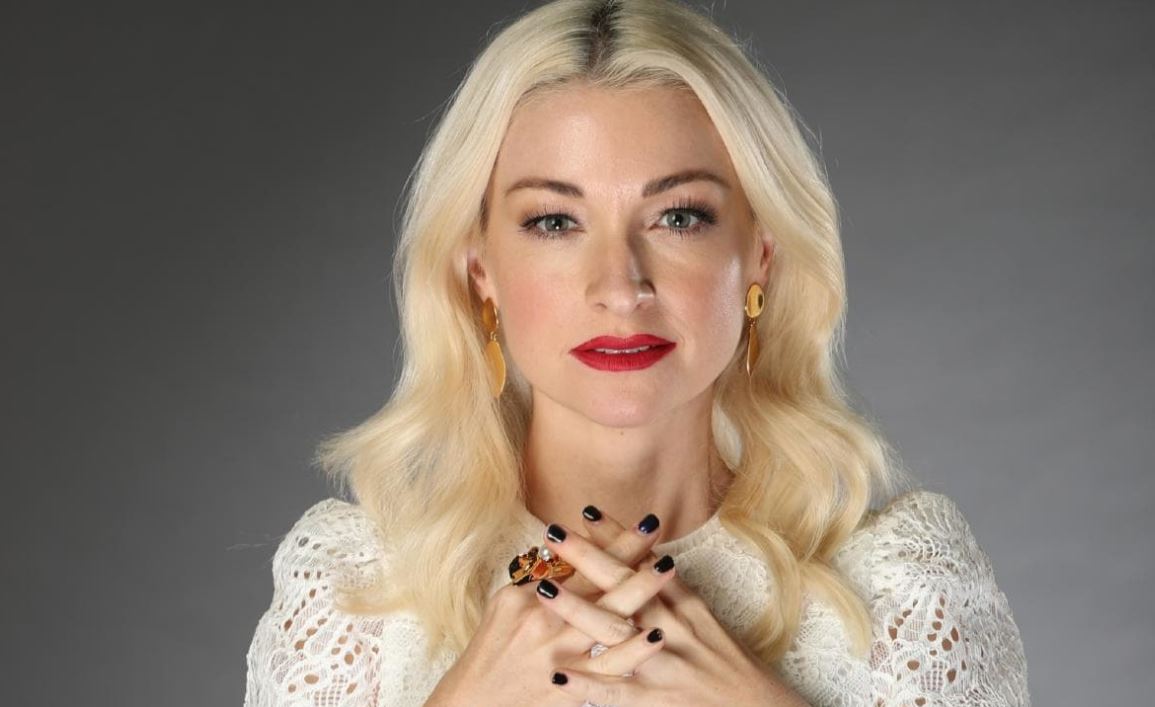Who knew that when Israel won the right to host Eurovision 2019 it would ignite controversy in Australia? Tel Aviv will host this year’s pop music extravaganza after Netta Barzilai won last year’s contest with Toy, a quirky salute to the #MeToo movement.
To be held on May 14, the contest will attract thousands of tourists, with Tel Aviv establishing a 2000-person tent city to accommodate those who stay on for its celebrated LGBT Pride Parade.
Today, a group badging itself Boycott, Divestment, Sanctions Australia will set up shop outside the SBS studios in Sydney, demanding that the network boycott this year’s Eurovision because it is to be held in Israel and joining overseas politicians and artists in making similar calls.
It will be the third such protest in recent weeks, some elements of the campaign bordering on harassment of Australia’s entrant, Kate Miller-Heidke — tagging her in Facebook posts, creating garish memes featuring her image, publicising her Facebook and Twitter URLs and promoting online petitions.
Another protest occurred on the Gold Coast when Miller-Heidke won the right to represent this country from 700 entrants at a Eurovision: Australia Decides festival.
BDS Australia has a “fundamental problem with Eurovision going ahead in the midst of the catastrophe in Gaza”, it said, issuing a leaflet with an unauthorised SBS logo.
SBS responded unambiguously. “SBS respects the right for people to express their views and we acknowledge the concerns raised by those opposed to the contest being held in Israel,” it stated.
“SBS has been proudly broadcasting Eurovision for 35 years and we will continue to do so because of the spirit of the event in bringing people and cultures together in a celebration of diversity and inclusion through music.”
The heat and dust will doubtless escalate as the contest draws near.
Protesting voices abroad include 23,000 Icelanders petitioning their country’s broadcaster to boycott the event; Irish members of the European Parliament, Portuguese artists and Sweden’s Left Party urging a boycott; and London’s Guardian publishing a letter carrying 141 signatures. English protesters picketed a concert by Barzilai while French protesters disrupted her appearance on French TV by jumping on stage, but they were quickly removed by security.
Addressing a rally at Circular Quay in Sydney, BDS Australia speaker Nadia Zeaiter said Eurovision would be held in Tel Aviv “on occupied Palestinian land” — a view held by terrorist groups and other extremists.
Then there are the principled voices, most notably Canadian Prime Minister Justin Trudeau, who has deplored BDS as “the new form of antisemitism in the world”. Antisemitism has manifested itself not just in targeting individuals but in targeting Israel, he says, citing students who “feel unwelcome in some of our campuses because of BDS-related intimidation … I condemn the BDS movement. Holocaust deniers still exist. Antisemitism is still far too present. Of the entire community of nations, it is Israel whose right to exist is most widely and wrongly questioned.”
Madonna has announced that she will perform at Eurovision in Tel Aviv, and Australian singer-songwriter Nick Cave, who recently performed there, emphasises that while he supports the Palestinian cause, a cultural boycott of Israel is “cowardly and shameful” — a position underscored by the ranking of 162 nations by the Washington, DC-based Cato Institute’s 2018 Human Freedom Index.
The index placed Israel 49th and Turkey, Ukraine, Russia and Azerbaijan, which have all hosted Eurovision, 107th, 118th, 119th and 130th, respectively, taking into account 79 indicators of personal and economic freedoms such as security, movement, religion, identity, relationships, assembly and civil society.
Eurovision was first held in 1956 to unite war-ravaged Europe, and Australia and Israel are the only non-European nations to compete in it today.
This year’s theme is Dare to Dream. Is it unrealistic to dream that the unity aspired to in 1956 will extend to all nations one day? That the rank hypocrisy in singling out the only Jewish state for boycott while ignoring some of the most egregious human rights abusers — which also participate in Eurovision — will one day be rendered obsolete?
In the meantime, SBS and Miller-Heidke are to be applauded for their principled stand. Eurovision is about music and inclusivity; keep politics out of it.
This article by Vic Alhadeff (NSW Jewish Board of Deputies chief executive) appeared in The Australian.

